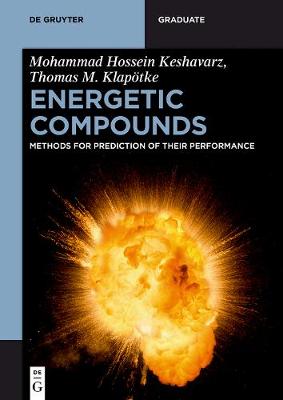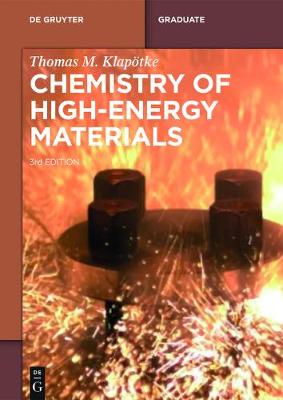De Gruyter Textbook
2 total works
Chemistry of High-Energy Materials continues in this new and revised 3rd edition to provide fundamental scientific insights into primary and secondary explosives, propellants, rocket fuel and pyrotechnics. The contents of the previous edition were meticulously updated and recent research developments added to this graduate-level textbook. Applications in military and civil fields are discussed. Especially environmental issues caused by lead-based primary explosives, perchlorates in pyrotechnic formulations and modern signal flare compositions are discussed and current research presented. Further additions include the understanding of the mechanism and continuing development of laser ignition methods, techniques for the characterization of detonators and their output as well as principles and effects of underwater explosions.
New in the 3rd Edition:
• Revised and updated content, new study problems and questions.
• Extended examination of the application of ionic liquids in the field and hydrodynamics.
• Intended for advanced students in chemistry, materials science and engineering, as well as to all those working in defense technology.
"This book makes a nice addition to the shelf of everyone involved with energetic materials. As such it is recommended as a very useful reference for both students and experienced readers."
Ernst-Christian Koch on the 2nd Edition in: Propellants Explosive Pyrotechnics 16/2011
Upcoming titles by Thomas M. Klapötke:
- Energetic Materials Encyclopedia (January 2018)
Thomas M. Klapötke
CSci CChem FRSC was from 1995 until 1997 Ramsay Professor of Chemistry at the University of Glasgow in Scotland. Since 1997 he has held the Chair of Inorganic Chemistry at LMU Munich.

